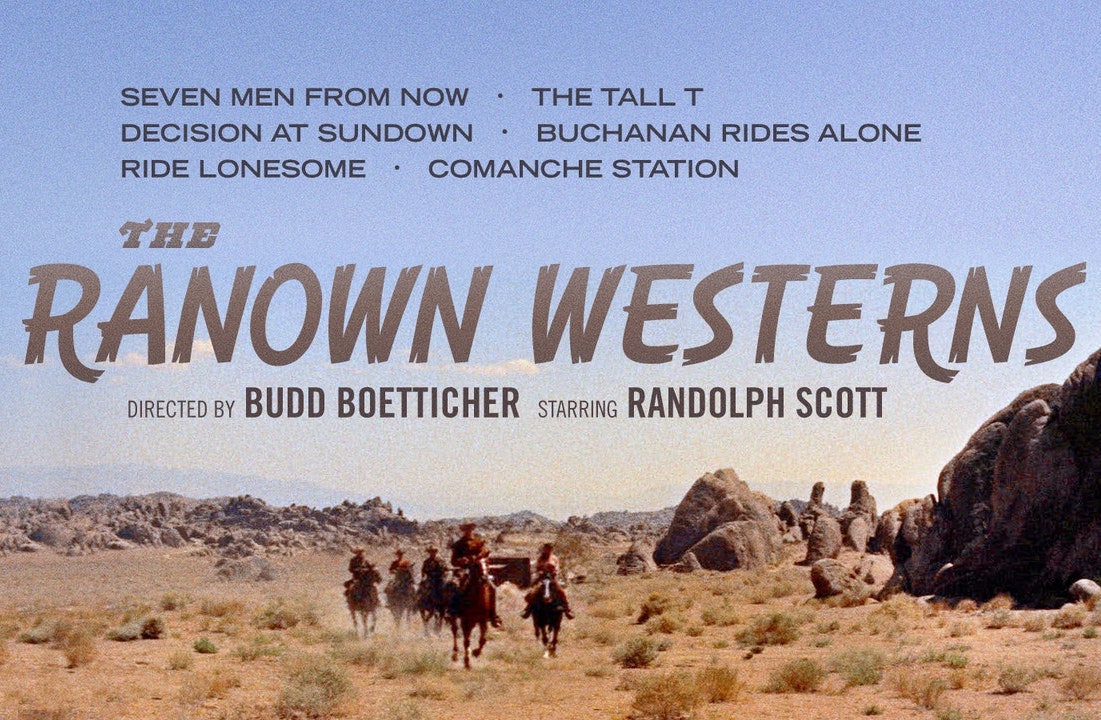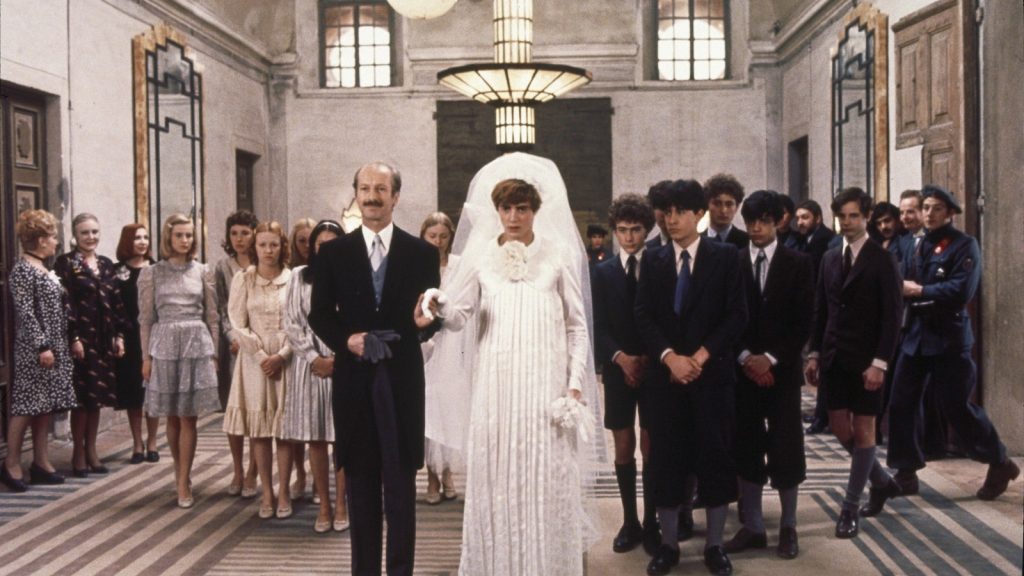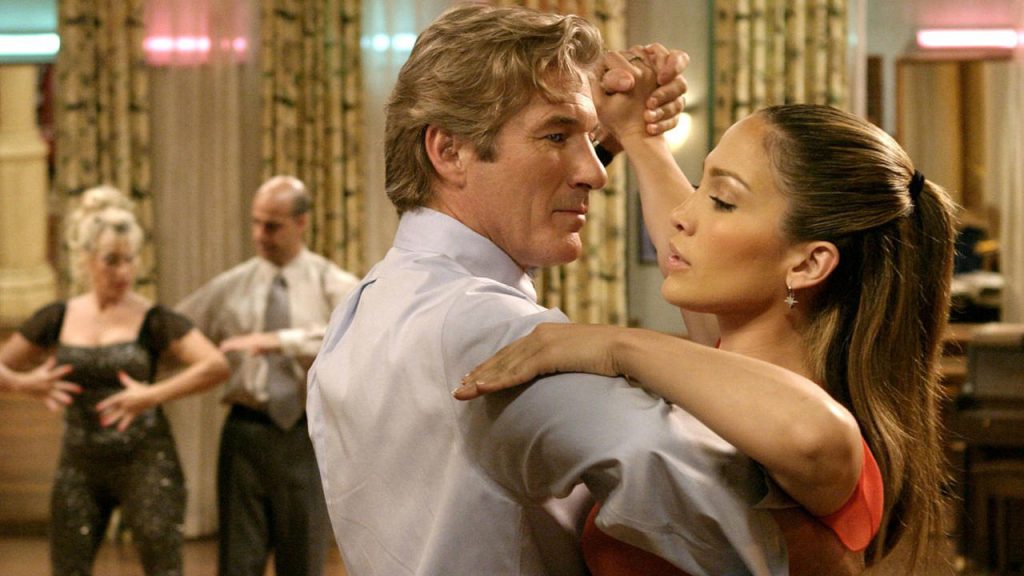The conventional film history wisdom surrounding “The Ranown Westerns” – the six films starring Randolph Scott and directed by Budd Boetticher in the late 1950s – is, unsurprisingly, repeated on their current Criterion Channel showcase page, which defines them as “a crucial link between the classicism of John Ford and the postmodern revisionism of Sam Peckinpah.” This assessment is both accurate and vastly oversimplified. The first of the Ranown Westerns was released in 1956 – the same year Ford released The Searchers, a film in which the psychological complexity and genre subversions of both Botticher and Peckinpah are very much in place. And this was a full six years after the release of Winchester ’73, the first of five noir-tinged Westerns directed by Anthony Mann and starring James Stewart, which similarly complicated the tropes of the genre. And that series began two years after the release of Red River, Howard Hawks’s loaded examination of masculinity and authority on a cattle drive, with John Wayne as a hero that quietly becomes a villain.
None of which blunts the impact or importance of these pictures; quite the contrary, in fact. It’s important to understand that the Ranown cycle was part of a quiet but ongoing movement to rethink and reimagine what the Western was, and what it could be, even as the more mainstream oaters of film and television continued in much the same key. But these six films – 7 Men From Now (1956), The Tall T (1957), Decision at Sundown (1957), Buchanan Rides Alone (1958), Ride Lonesome (1959), and Comanche Station (1960) – were something special. Lean and mean (none of them run over 80 minutes), they carved out their own particular niche, their own specific way of telling a story, and serving a persona.
Watching them altogether on a streaming service like Criterion, where the interface organizes them like a TV series, makes them feel like one; an anthology, perhaps, as Scott isn’t playing exactly the same character in each one. But he’s playing variations on one, a similar kind of man, usually something like but not precisely a man of the law (he plays bounty hunters in two entries, and former sheriffs in others). By the later entries, our familiarity with the actor, the director, and the frequent screenwriter Burt Kennedy has the same effect as watching a TV series. The baggage they bring in fills in the blanks.
Scott had starred in Westerns since the early 1930s, so his onscreen identity was defined; Boetticher alternately used those preconceptions and subverted them. Scott is a big, sturdy oak of a man, often haunted by a backstory and its demons (frequently a wife who was taken from him). He makes a virtue out of opacity; he’s often hard to read, giving even his most loaded lines a hard, flat delivery, frequently diverting the conversation from lofty talk to the business at hand. He’s very good at replying without saying anything, and because he never shows his hand, he’s able to play his adversaries like a piano. At other moments, he can insert a slight air of bemusement into his low, flat voice – moments when another (lesser) man might lose his temper, and he’s so calm and cool that when does finally raise a fist, it’s a big deal.

His true identity and motivation is often kept until deep into these (short) films; Decision at Sundown even begins with him pulling a gun on his stagecoach drivers, offering the brief but tantalizing possibility that he’s the villain. Such a thing would never fly, of course, but the way Kennedy’s scripts flirt with his identity speaks to the pliability and perception of “good guys” and “bad guys” in the period. Yet he’s also not boxed into the “man of few words” characterization; scattered films allow him to show a paternalistic warmth, as in his relationship with a friend’s son in The Tall T (giving us the memorable image of him riding around with several giant sticks of peppermint candy sticking out of his breast pocket), or the soft-spoken kindness he shows the young Mexican man he stands trial with in Buchanan Rides Alone (“It was an honor knowing you,” Scott tells him when they part company, and he means it). And in Comanche Station, when he senses the hesitation and doubt of a young gunman, he tells him simply, “Think it over, son,” and there is quite a bit going on in that “son.”
Because Scott is so willing to play the anchor, and so good at it – so solid and present – the supporting players (especially the villains) can really wild out. Lee Marvin in magnificent in 7 Men from Now, threatening and insinuating and vaguely sexual; in The Tall T, the great Richard Boone conveys a grudging sense of respect that puts genuine suspense on the outcome, particularly when he appeals to Scott’s sense of honor and fair play when he’s got the drop on him. Claude Akins creates a vile villain in Comanche Station, but that allows some shading for his henchmen, who know what they’re doing is wrong, but “a man sorta gets used to a thing.” When Dobie (Richard Rust) muses, “Sure hope I amount to something,” we’re getting into weightier territory than the typical oater – that’s frontier poetry right there.
In contrast to those films, the villain of Decision at Sundown isn’t a traditional outlaw – it’s a respectable fellow, in a nice suit, a man about town about to be wed (and who sends others to do his dirty work). Similarly, the town in Buchanan Rides alone is under the the thumb of a single, corrupt family, which is allowed to run rampant until someone fights back. In both films, the townfolk that have enabled them have to come to terms with their complicity (“Kimbrough couldn’t have changed Sundown if we hadn’t helped… by doing nothing, just like we’re doing now”), an idea explored in other, higher-profile Westerns of the era like High Noon. And these films, like that one, carefully and subtly remind us that this is not a question that died in the 19th century.
That thoughtfulness is typical of the way that these seemingly bare-bones programmers slyly grapple with complex themes and relationships. Throughout the cycle, the momentum of the narrative is rarely provided by shoot-outs or fistfights; the action is dictated by what these characters want, and the bargains they’ll strike with each other with each other to get it. And motivations are never simple; Scott’s disgraced lawman in 7 Men is haunted by guilt informed by failure, while his character in Decision at Sundown is set up as a hero, a good and righteous man, but then (much like Wayne in The Searchers) that perception is complicated by his wounded pride, stubbornness, and vulnerability.
In The Tall T, one of Scott’s old pals, a stagecoach driver, despairs, “They layin’ tracks over yonder, faster than a nervous hen.” Stagecoaches like his are on their way out, and the train – representing change and progress and increased speed – on the way in. That spirit haunts much of the Ranown cycle, that sense that the end of the West is just around the corner, and that, simultaneously, the Western as they knew it was changing as well. But as with the stage and the rail, that shift was ultimately for the better. And these crisp, efficient, and entertaining pictures helped point the way towards what the genre could truly accomplish.
The Ranown Westerns are currently streaming on the Criterion Channel.



